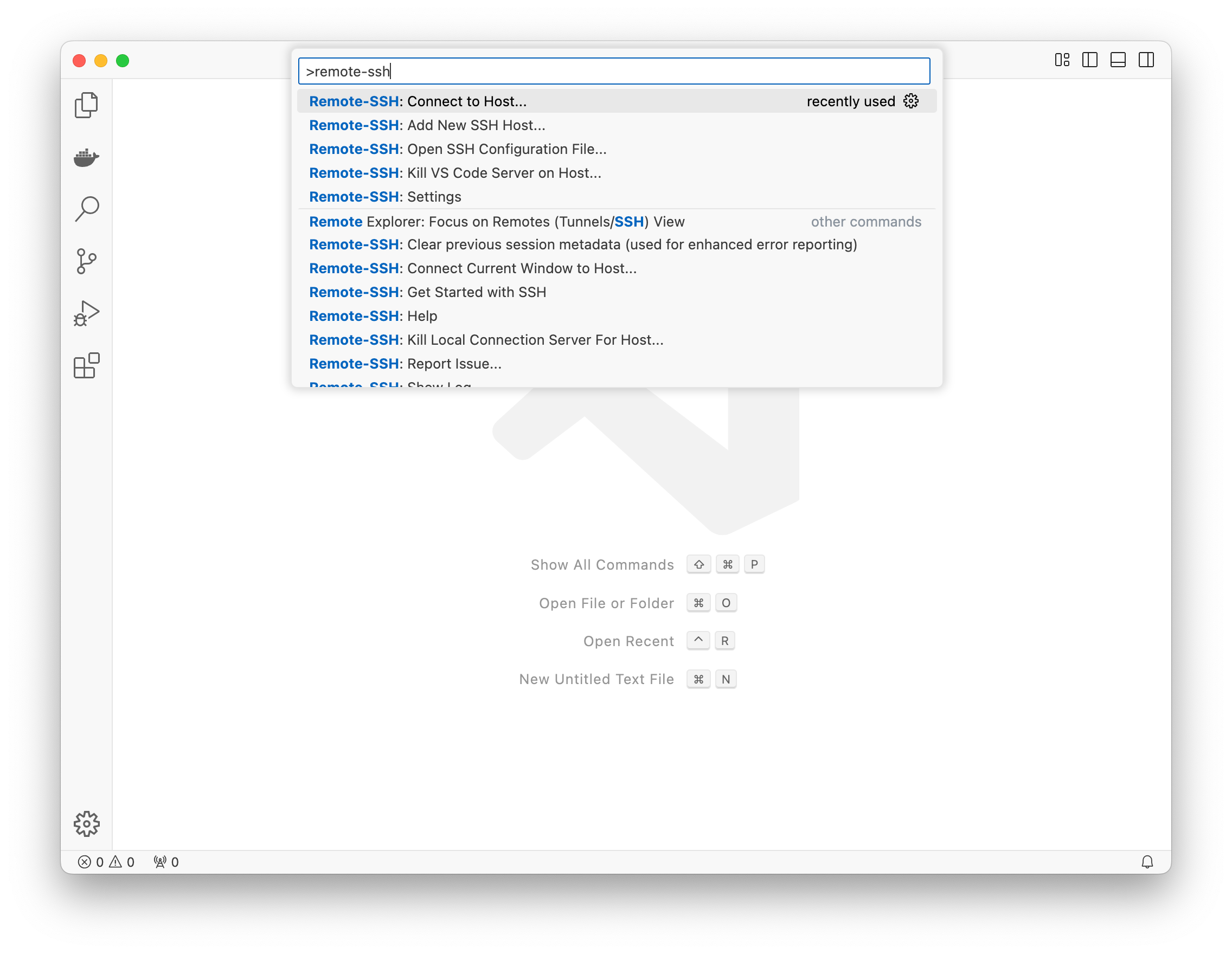Connecting to Spaces
How you work with others in your Space
You can connect to Spaces you created or Spaces shared with you by your team members. You connect to Spaces using the same secure technology that you already use to access machines anywhere.
Connecting to Spaces
You can connect to your Spaces using the terminal or your favorite IDE. Let's describe how PairSpaces secures your Spaces when you access them.
Cloud Spaces
PairSpaces uses the same Secure Shell (SSH) technology that you're familiar with when connecting to Cloud Spaces.
Note To update your SSH configuration file with the Spaces you can access use pair spaces list.
Terminal. When you use the PairSpaces CLI to access your Space with pair spaces connect SPACE_ID, the PairSpaces CLI uses your Keys (created using pair keys create) to create a SSH session and provides the same features that you expect from SSH - secure remote access, agent forwarding, secure copy, secure FTP, port forwarding, etc.
The command pair spaces connect SPACE_ID also creates a configuration entry in your SSH configuration file if you haven't run pair spaces list.
IDE. Cloud Spaces work with any IDE that can create SSH sessions using the SSH configuration file on your computer. For example, VSCode's Remote SSH extension works with any Space included in your SSH configuration file.

When prompted select the SSH configuration entry labeled with your SPACE_ID. This configuration entry is created when you run pair spaces list.
Container Spaces
PairSpaces uses the same Secure Shell (SSH) technology to access Container Spaces as it does Cloud Spaces. The connection between your Container Space and your team is not the same, however.
To create a secure connection between your Container Space and your team PairSpaces uses a software-defined network in a zero-trust configuration. This means the connections to your Container Space are gated by a policy that you define when you select team members to share your Container Space with. The connection between your team members and your Container Space is also end-to-end encrypted using the Keys that they create with pair keys create.
IDE. Local Spaces work with any IDE that can create SSH sessions using the SSH configuration file on your computer. For example, VSCode's Remote SSH extension works with any Space included in your SSH configuration file.

When prompted select the SSH configuration entry labeled with your SPACE_ID. This configuration entry is created when you run pair spaces list.
Local Spaces
PairSpaces uses the same Secure Shell (SSH) technology to access Local Spaces as it does Cloud Spaces. The connection between your Local Space and your team is not the same, however.
To create a secure connection between your Local Space and your team PairSpaces uses a software-defined network in a zero-trust configuration. This means the connections to your Local Space are gated by a policy that you define when you select team members to share your Local Space with. The connection between your team members and your Local Space is also end-to-end encrypted using the Keys that they create with pair keys create.
Terminal. When you - as owner of the Local Space - start your Space using pair spaces connect SPACE_ID, a Docker container starts on your machine, which accepts connections from a software-defined network.
When your team members access your Local Space, the PairSpaces CLI uses their Keys to create an SSH session across the software-defined network. This is effectively a secure shell session wrapped in an end-to-end encrypted connection.
IDE. Local Spaces work with any IDE that can create SSH sessions using the SSH configuration file on your computer. For example, VSCode's Remote SSH extension works with any Space included in your SSH configuration file.

When prompted select the SSH configuration entry labeled with your SPACE_ID. This configuration entry is created when you run pair spaces list.